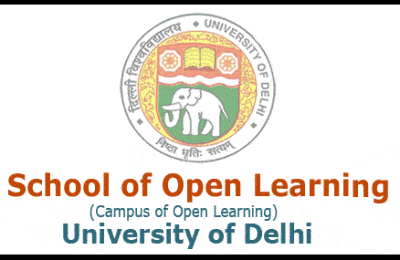The students from the School of Open Learning (SOL) held a referendum against the implementation of Choice Based Credit System (CBCS). Read on to know more.
The School of Open Learning (SOL) was established as a constituent college of the Delhi University (DU) in 1962, and is a pioneer in the field of distance education in India. It is one of the largest educational institutions in India, with around 5 lakh students.
SOL is a correspondence option offered to students all over the country by DU. It is a suitable alternative for people pursuing professional courses like Chartered Accountancy, Company Secretary etc. As these students require a degree but find it hard to go to college every day.
Till the last academic session, SOL had been following the annual mode of examinations. Until this July, when the University announced the introduction of CBCS, wherein exams take place each semester (every six months).
According to the students, SOL is not yet ready for the transitions. They have been protesting against this notion. The protest was led by the activists from the Krantikari Yuva Sangathan (KYS). “It should be known that implementing CBCS without discussion with the general students is not only arbitrary but is also an example of the administration’s carelessness. It should also be noted that till now more than 1.5 lakh students have already been admitted in annual mode and without any consultation, the semester system has been imposed,” read a statement issued by KYS.
As stated in a report by the Hindsutan Times, around 10,000 students participated in the aforementioned referendum, out of which 99% rejected the administration’s decision of implementing the CBCS system in SOL.
Some of the students had also indulged in a hunger strike in August. Earlier they wrote to the Ministry of Human Resource Development asking for assistance regarding the same. The students also claimed that CBCS study material has not been provided. Further, they said that no steps were taken to inform the students about the modifications in the curriculum.
Feature Image Credits: SOL Website
Avni Dhawan




